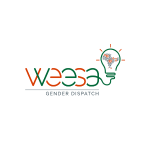

Women’s Economic Empowerment in South Asia (Hosted by SAR GIL)
Tags
- Gender-based Violence (17)
- Water (17)
- Measurement (10)
- Leadership (19)
- Afghanistan (4)
- Social Norms (9)
- Infographics (9)
- Migration (14)
- Transportation (12)
- Green Transition (7)
- Brief (2)
- Empowerment (5)
- Toolkits (13)
- Pakistan (23)
- Energy (26)
- Jobs (43)
- Infrastructure (20)
- Self-help Groups (12)
- Agriculture (12)
- Social Protection (12)
- Digital Inclusion (19)
- Nepal (12)
- Private Sector (27)
- Care Economy (10)
- Bhutan (2)
- Sri Lanka (6)
- Blogs & Articles (34)
- Podcast (33)
- Reports (70)
- India (30)
- Assets and Resources (14)
- Bangladesh (24)
- Maldives (1)
- Climate Change (32)
- Entrepreneurship (31)
- Video (2)
- Financial Inclusion (24)
- Policies and Legislation (14)
- Male Engagement (7)
- Gender Budgeting (7)
- Education and Skills (23)
Archives
- 2023 September (55)
- 2023 October (30)
- 2023 November (20)
- 2023 December (1)
- 2024 January (14)
- 2024 February (14)
- 2024 March (11)
- 2024 April (13)
- 2024 May (93)
- 2024 June (2)
- 2024 July (12)
- 2024 August (16)
- 2024 September (12)
- 2024 October (16)
- 2024 November (27)
- 2024 December (5)
- 2025 January (12)
- 2025 February (18)
- 2025 March (19)
- 2025 April (8)
- 2025 May (12)
- 2025 June (2)

Documents
How safe transport could unlock women’s labour force participation in Pakistan
Could safe transport unlock women’s workforce participation in Pakistan? In a recent VoxDev podcast, SAR GIL’s Kate Vyborny discusses how limited mobility keeps women in urban Pakistan out of the labor market –
Gender Equality in the Workplace – Policy Review and Recommendations from Pakistan’s Business Sector (2024)
This report spotlights how 38 for-profit companies across Pakistan are creating more equal workplaces for women. Since 2021, the Center of Excellence in Responsible Business (CERB) has partnered with the International Finance
Paving the Way for Women’s Economic Empowerment in Pakistan (2024)
In this episode from the podcast series “Gender Talks,” Shahnaz Kapadia, CEO of the Mera Maan Organization, and Fariya Ammar, Portfolio Manager at UN Women, unpack what economic empowerment means for
Empowering Women Through Digital and Financial Inclusion
In today’s digital age, access to technology and financial services is more than just a convenience—it is a necessity. Yet, millions of women around the world remain disconnected from the
Women's Economic Empowerment in Pakistan: An Evidence Guided Toolkit for More Inclusive Policies
This report examines the pervasive gender gaps in Pakistan, highlighting critical barriers to women's economic empowerment, including limited labor force participation, restricted access to financial services and productive assets such
Gendering Practices and Policies in The South: Lessons for Improved Equity and Sustainability in Pakistan’s Domestic Energy Sector (2021)
Exploring the gendered nature of energy practices and policies, this paper examines intersectional differences in urban and rural areas marked by on-grid and off-grid infrastructure. It provides a detailed analysis of
Gendered Dynamics of International Labor Migration: Migrant Women Working in Pakistan (2024)
This study explores the complex experiences of migrant women in Islamabad, based on interviews with 22 women from various countries, including the Philippines, Afghanistan, Canada, Uganda, Germany, and Algeria. Their
Do Women’s Financial Literacy Accelerate Financial Inclusion? Evidence from Pakistan (2023)
This study finds that different aspects of financial literacy – such as savings, debt, investment, and financial planning management practices – positively impact women’s financial inclusion in Pakistan. The authors
Women's Entrepreneurship in Pakistan: A Review of Literature (2023)
Taking a political economy approach, this report is a valuable resource for practitioners interested in designing interventions to support women’s entrepreneurship and economic empowerment in Pakistan. It discusses foundational factors
Do Catastrophic Floods Change the Gender Division of Labor? Panel Data Evidence from Pakistan (2021)
This report combines time allocation data from the Pakistan Rural Household Panel Surveys (2012-2014) with village-level flood depth data from satellite imagery to understand labor impacts from flooding. It suggests a